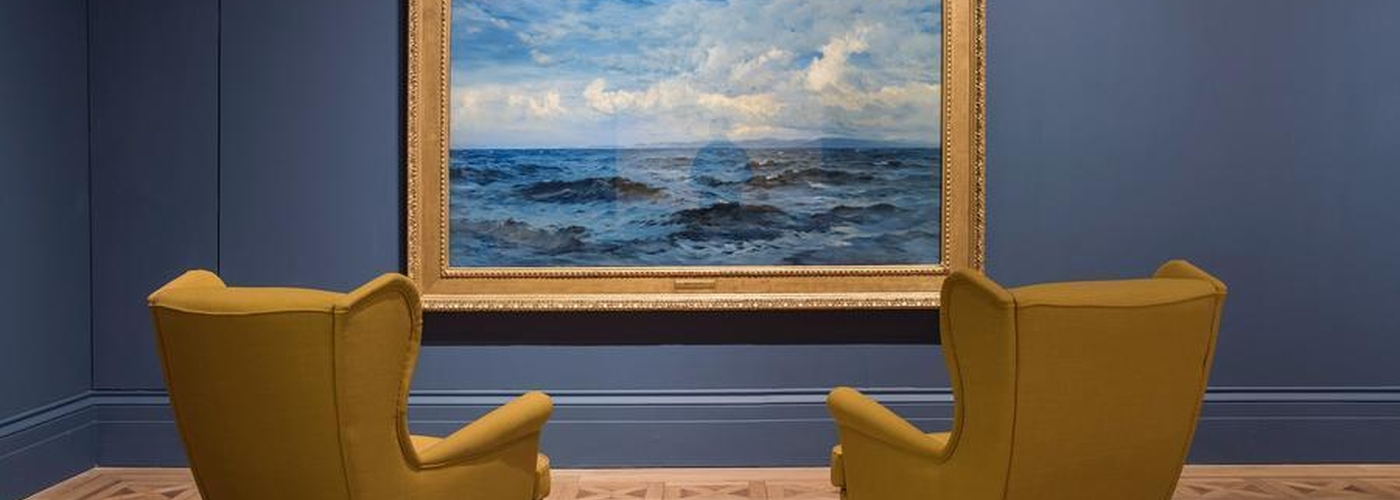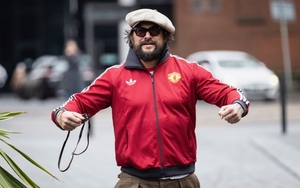Research shows the link between the arts and health creates a stronger and happier community
It’s a wet and miserable afternoon when I wander into Eccles Library. This beautiful old building is functioning as usual, but one corner is home to something other than books and DVDs. Filled with glowing lamps, tiny pot plants and, most essentially, the makings of nice hot cup of tea, it’s the ideal refuge for anyone in feeling in need of a bit of a chat or just a sit down and a think.
Reducing the need for drugs and helping with pain management alone would save millions
This temporary installation is known as Space, a mobile wellbeing room where people can come and have talk to a mental health practitioner, write down some thoughts and goals for the future, plant one of those tiny house plants or simply drink tea, all run by Salford-based arts company Art with Heart.
The idea originally came about as part of Declaration, a theatre performance centred around ADHD. Art with Heart realised they needed to offer a place of respite to the audience after such an in-depth performance. They created a room outside the theatre where people could decompress, and soon realised that it had potential as an independent installation that could help people in the wider community.

While arts and culture can have an impact on all aspects of health, it is mental health that is most in need of the kind of support to be found at the intersection of art and healthcare. Rachel and Sarah, co-founders of Art with Heart, told me about how their interest in supporting mental health with their art came about.
Rachel said: “In theatre and performing art there is a lot of autobiographical work made on mental health and, while it’s really positive that that is happening on our stages and provoking conversation, something that we found as audience members was that the work could be very upsetting, but that so little thought went into the aftercare of audiences. People need a place to unpack their feelings afterwards.” And so Space was born. While it is technically an art project it is at least, if not more, a mental health programme.
Art with Heart are certainly on the right track. The World Health Organisation launched its report on the evidence base for arts and health interventions recently, while the All-Party Parliamentary Group on Arts Health and Wellbeing found comprehensive evidence to support further work on merging arts and health to create a stronger and happier community. For the pragmatists at the back, this also means saving the health and social care services money.
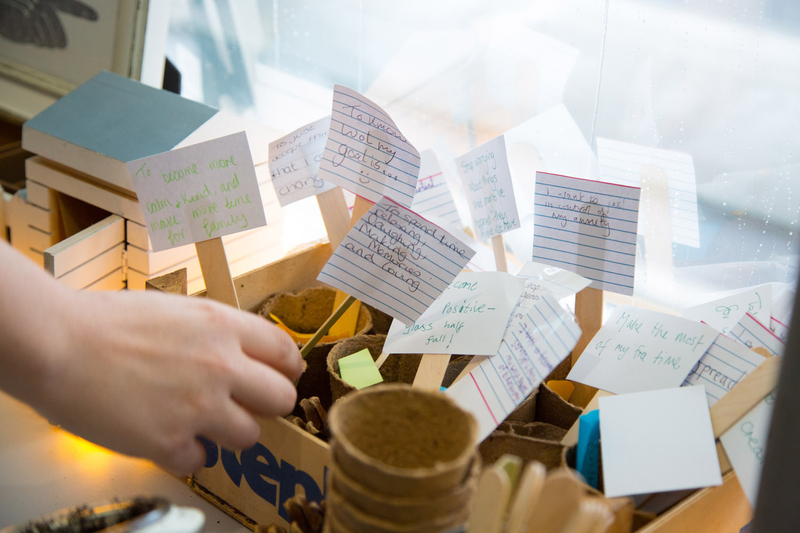
Participation in the arts reduces the use of pharmaceuticals, reduces costs and completion time for many medical procedures, reduces stress and burnout and helps with managing chronic pain. Just think of the implications for the NHS – reducing the need for drugs and helping with pain management (a huge and persistent issue in healthcare) alone would save millions – potentially more in the long run.
In Greater Manchester, the responsibility for the health and social care budget has been devolved, representing an opportunity to make the most of this culturally inspired approach. The GM Population Health Plan has a commitment to develop a programme of activity on arts in health and social care and embed this approach in the services it offers.
Indeed, the GM Combined Authority is acting on the research and ‘social prescribing’ is on the increase in Greater Manchester. Social prescribing is using non-clinical resources as a first port of call to help treat a range of issues as well as maintain wellbeing. It is not limited to the creative arts – social prescribing can also including walking clubs, cookery classes, time in nature and more.
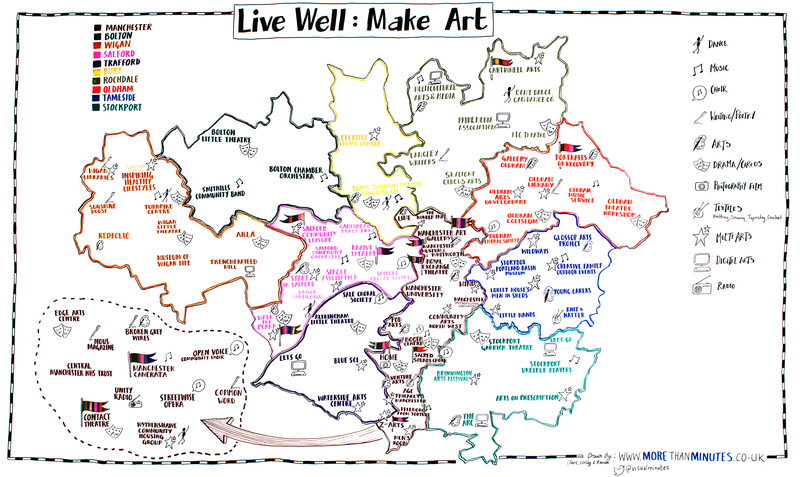
While the combination of art and health is not a new idea - Florence Nightingale once said: “Variety of form and brilliancy of colour in the object presented to patients are an actual means of recovery,” and that was a while ago now - how it is embedded in our health system is definitely something that is changing. More than 300 GP practices (around two thirds of the total) in Greater Manchester are now making social prescriptions. Nearly 6,000 people in Greater Manchester were given a social prescription between April and June of this year. This is up from around 8,000 during the whole of 2018/19 and the numbers are on track to reach more than 20,000 during the whole of 2019/20.
Metro Mayor Andy Burnham addressed a social prescribing ‘unconference’ earlier this year, saying: “In Greater Manchester, our approach is to give people greater control over their own health. This means tailoring health and care services to people’s personal circumstances, building on the strengths they have and using the support that already exists in their communities.
“This will not only improve people’s health and wellbeing, but it will also help take pressure off hard-pressed public services such as GP practices and A&E departments.
“Social prescribing shows how we can reshape public services to help people live healthy lives and manage any health conditions they have.”
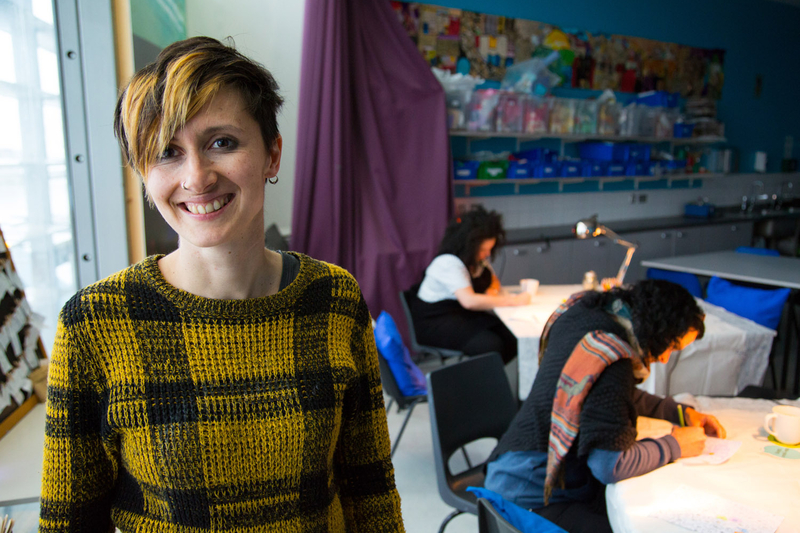
However social prescribing, as managed and implemented by a doctor, may a bit more formal then many arts practitioners have in mind. Back to Rachel of Art with Heart, who argues that a less rigid approach needs to be considered to complement social prescribing:
“The idea of Space is that it is a welcoming, creative and friendly place where you can just come and take time for yourself and you can speak to a trained professional in an environment that doesn’t have the intensity of a one-on-one. So for some people who can’t or don’t feel ready to access the more intensive counselling services it’s just a place to touch in and see where you’re at.
“Now in our communities, and we work across Greater Manchester, services have been cut, and poverty and deprivation are worse, which leads to a spike in mental health problems and for some people, they don’t know where to start.
“In the longer term, Steph (Walker, a mental health practitioner working with Art with Heart on Space) researches in depth lots of different services in the local area - we are signposting people to a range of activities and her approach is very holistic. So some people might want to go on a CBT course or to their local Mind group, or some people might really benefit from a gardening or walking group or an arts space."
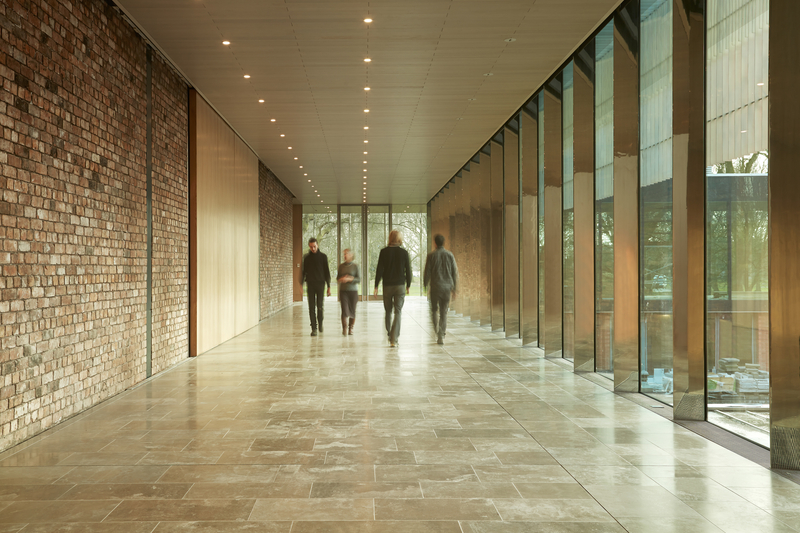
While Space makes its home in the community, some of our less mobile cultural institutions are paying serious attention to how their cultural capital could translate into health benefits for Mancunians. Manchester Art Gallery, which states that it is ‘a place where you can go and look after your mental health’, runs a de-stress with art session on the first and third Tuesday everything month, while And Breathe... is long-running exhibition that explores how we can nurture our mental and emotional wellbeing through interacting with art.
Similarly the Whitworth has a host of programmes designed to support physical and mental wellbeing. Its 'Natural Cultural Health Service' programme of events includes a gardening group, meditating in nature and a feel good arts group of kids.
While the theory is good, arts and culture is not a panacea. Healthcare of all types, especially mental health services, desperately needs funding across the board. But as I left the Eccles Library I saw more and more people gravitating towards the cosy glow of Space, including some of the people that are considered the hardest to reach by mental health professionals, I couldn't help thinking that old Florence might have known a thing or two.
Arts and culture resources near you
Space will be calling at the Nest in Wigan, 4th December 2019. Check here for more details.
The Natural Cultural Health Service from the Whitworth is a programme of events that combine health and the arts, including yoga, an arts and silent spaces.
Manchester Art Gallery has a range of events that connects art and mindfulness.
Live Well Make Art is an informal network of arts professionals and activists, health professionals and activists, academics, and people who care passionately about the health of Greater Manchester. They want a healthier Greater Manchester, where all its people can share the benefits of engaging in and enjoying the arts and creative activities with each other.





